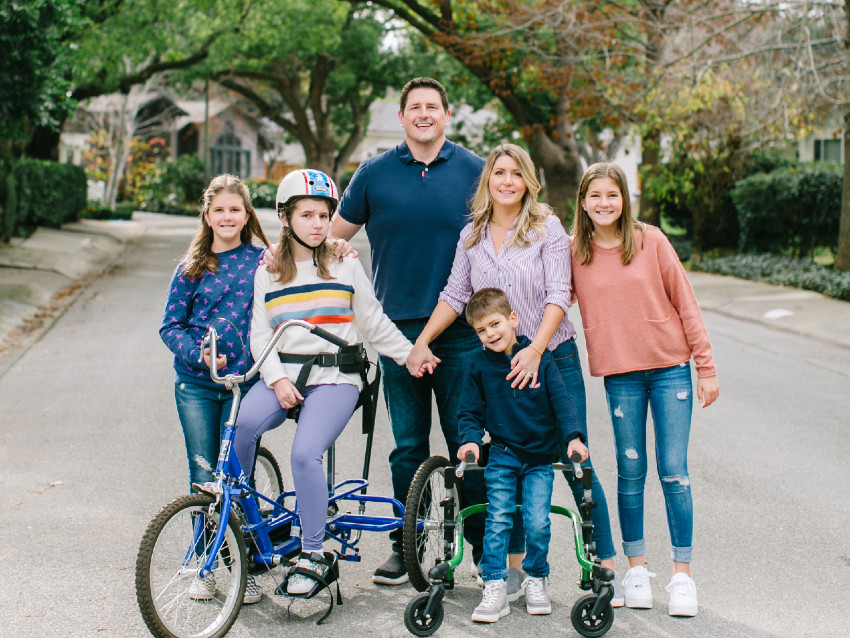A foundation established by Menlo Park parents of children who suffer from a rare genetic epilepsy has received a $450,000 grant from the Chan Zuckerberg Initiative (CZI) toward its efforts to find treatments and a cure.
The grant is part of CZI’s newly announced $13.5 million in funding to 30 patient-led organizations working to find treatments and cures for rare diseases, called the Rare As One Project.
The TESS Foundation, founded by Kim and Zach Nye, announced it will use the CZI grant to construct infrastructure aimed at raising funding for collaborative research and a cure for SLC13A5 Deficiency, which causes a lifetime of debilitating seizures that begin within hours of birth. The grant will also fund an international research roundtable in March that will join patients, clinicians, researchers and industry to discuss the issue.
Of the Nyes’ four children, two, 16-year-old Tessa and 6-year-old Colton, suffer from SLC13A5 Deficiency. They launched TESS Research Foundation in 2015. The foundation’s research and collaborations have enabled treatments for the disorder to move into clinical trials within the next two years with sufficient funding, according to CZI.
“As a pediatric neurologist for the past 23 years, I have taken care of many children with severe neurologic disorders, and the quest for a cure seemed like an unrealistic vision,” said Dr. Brenda Porter, professor of neurology and head of the TESS Research Foundation Scientific Advisory Board. “Today, I am excited as the path forward for curing genetic disorders including SLC13A5 may be attainable with tools under development.”
Priscilla Chan, co-founder and Co-CEO of CZI, said her organization is “committed to finding cures for rare diseases.”
“We are proud to support patient-led organizations as they pursue diagnoses, information, and treatment options in partnership with researchers and clinicians,” Chan said.






